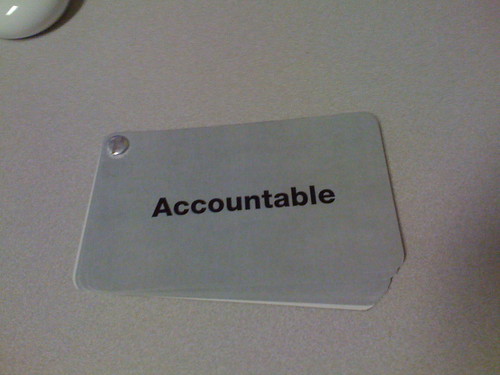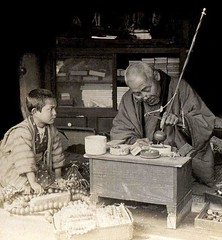Remember the ancient approach to Knowledge Management, of Master and Apprentice? Throughout the middle ages, and into the early industrial age, the Masters were the knowledge holders, and Apprenticeship was the system of transferring that knowledge to a new generation of practitioners of a skill.
Has that survived to the knowledge age? Many clients I speak to are having real problems recruiting the knowledge holders to the concept of KM. Even in those companies where knowledge holders are few, and knowledge seekers are many, the experienced subject matter experts are often reluctant to become involved with KM.
The reason is, that because knowledge is scarce, they are busy doing the job, and have no time to teach. The fewer experienced practitioners the company has, the busier they are in actually performing the work. In addition, many experienced staff are experienced because they enjoy doing the work, and doing it well, and they see KM as a distraction or an added burden. They often feel that KM "is not my job".
"I am an experienced boiler-maker/salesman/brewer/application designer - my skills are in huge demand. Why should I take time out to share my knowledge? That's not my job"
The answer to this, of course, is to make it their job. You can't expect busy people, in demand from all over the organisation, to add to their burdens with work that isn't in their job description. But if their knowledge is vital to company performance, then sharing that knowledge needs to be in their job description. It needs to be recognised as part of their job, and they need to be given the space, the resources, the assistance, and (if necessary) the training to allow them to share their knowledge with the next generation - the apprentice generation.
The old career progression was Apprentice - Journeyman - Master. Knowledge Companies need to rediscover this progression, so that the Masters (of both sexes) - the Subject Matter Experts - can see their role as Teaching as well as Doing, and as passing on their skills to those who need them, through the tools of KM (wikis, community forums, peer assists etc) as well as through the traditional tools of apprenticeship (coaching, mentoring, training).
(The need for Knowledge Retention, described in the white paper available here, is often a symptom that the SMEs have become disengaged from knowledge sharing)











